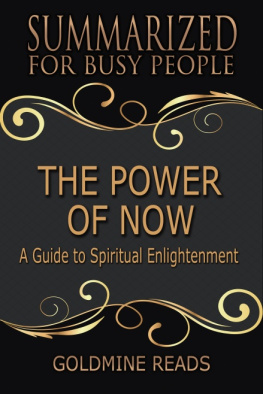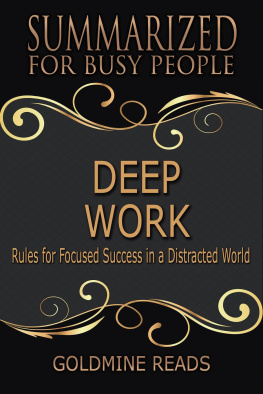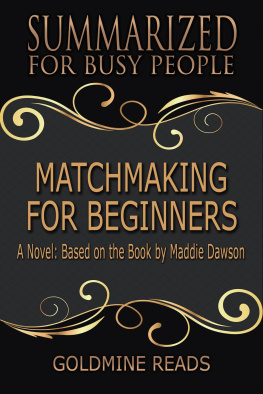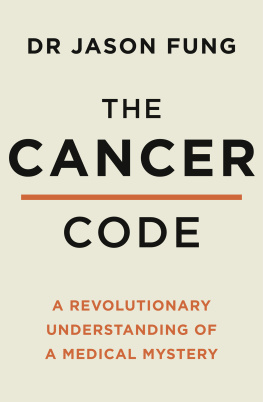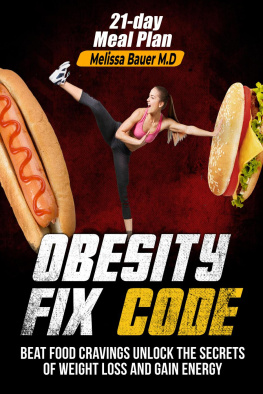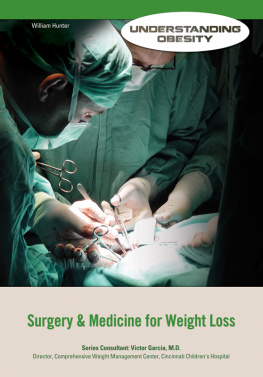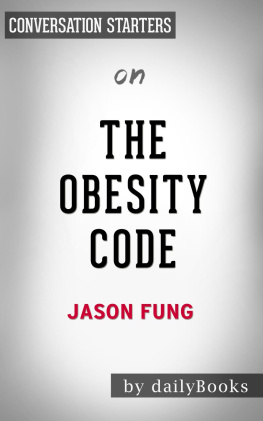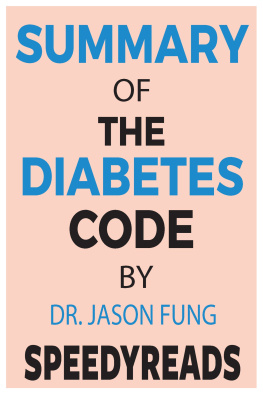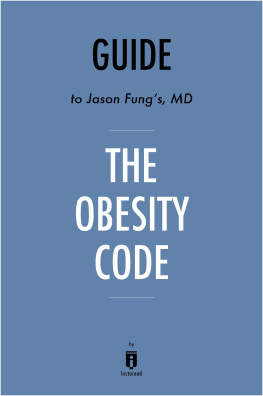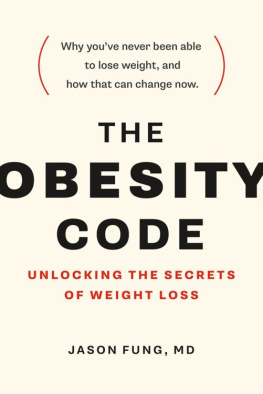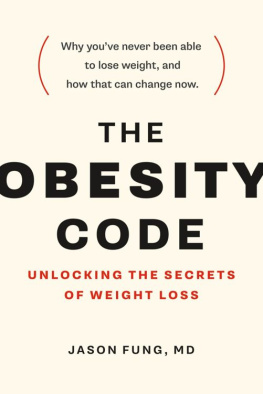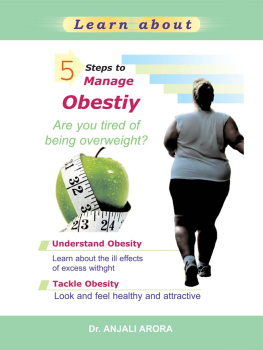THE OBESITY CODE
Summarized For Busy People
Unlocking the Secrets of Weight Loss
Based on the Book by Jason Fung
Goldmine Reads
Copyright Goldmine Reads
All Rights reserved. No part of this text may be reproduced, stored in a retrieval system, or transmitted, in any form or by any means, without the prior permission in writing of the copyright holder.
Under no circumstances will any legal responsibility or blame be held against the publisher for any reparation, damages, or monetary loss due to the information herein, either directly or indirectly.
Respective authors own all copyrights not held by the publisher.
TABLE OF CONTENT
Introduction
Dr. Jason Fung is a physician and nephrologist based in Canada. You may wonder how a kidney specialist could possibly make unprecedented discoveries on nutrition. After all, everything that goes in makes all the difference in what comes out.
While it is true that dialysis provides comfort for its patients and indeed adds a few more years to their life span, it dawned on Dr. Fung that dialysis merely treats the symptoms. He also realized that the conventional medical practice does nothing to address the primary causes of his patients kidney problems. Dr. Fung identified that a great number of his dialysis patients were type II diabetics. This meant a direct correlation between the diet of his patients and their kidney failure. By the time the dialysis patients were received by Dr. Fung, there was nothing he could do. Dialysis, no matter how long or how many, could not undo the damage done to their kidneys.
Dr. Fung wanted to make a change in whatever way he can. In his extensive research, he discovered that this was not the nutritional problem being treated in its final stages when remedial therapy was no longer possible. He discloses for doctors to admit that they are only addressing symptoms of an illness and not the cause itself makes them feel inadequate. Dr. Fung also states that being accustomed to medicine prescription means standing behind cognitive dissonance. Their prescribed medicine fails, and instead it is the patient who is found at fault. One may wonder how a patient could be held liable when in truth, no one wakes up one day and decides to abuse their kidneys in the hopes having a machine do their bodys dirty work.
Dr. Fung realized that blaming the patients for their life choices wont contribute to solving the existing nutritional problem. He recognized that preventing illnesses that eventually lead to kidney failure meant addressing the root of the problem: identifying and correcting the present life conditions which are conducive to kidney failure itself. Looking at the bigger picture, this also meant educating both children and young adults to make proper nutritional choices.
The solution seems simple enough, doesnt it?
However easy it may seem, no one seems to agree about the obesity epidemic and what must be done about it. This epidemic is recognized worldwide yet concrete solutions are yet to be applied.
After years of comprehensive research, Dr. Fung finally concluded that there are two main things that could help combat obesity. These are: reduction of refined carbohydrates and fasting.
You may be shaking your head right now, thinking this is just another type of fad diet that will work only in the short term or worse not at all. Youre right: fad diets are fraud. Fad diets dont work. Occasionally, they will seem to work only for a while, and then gradually lose any effect sometimes even worsen present body conditions.
In this book, Dr. Fung unlocks the secrets on the Obesity Code reveals his groundbreaking discoveries on preventing the obesity epidemic.
Chapter 1:
The Causes Behind Obesity
Obesity. Wouldnt it be wonderful to finally identify the singular cause of this epidemic? However simple and easy it may seem, one-liners are no answer to what was primarily an American epidemic, and is now prevailing on a global scale. Preventing and treating physiological problems are neither simple nor easy. To understand better the concept of obesity, let us acquaint ourselves with a few definitions.
Obesity is a medical condition where fat consists more than 30% of ones body mass index (BMI). The body mass index is calculated by dividing the weight by the height of the individual. This division involves converting the values into similar measurements, and thus the Centers for Disease Control and Prevention (CDC) have developed an adult BMI calculator to help people identify their body mass ratio. This is an oversimplified way of determining obesity because no considerations are given to both muscle mass and bone density. Nevertheless, you can start with the BMI if you think you have a few extra pounds to lose.
Diet basically refers to the food we consume. When people say they are going on a diet, what they really refer to is restraining their diet to assist in losing some weight. Adhering to a prescribing diet usually entails difficulty in abiding food restrictions, and eating unfamiliar and less palatable foods. However, these are not the reasons why diets dont usually work. Hence, the ineffectiveness of prescribed diets is one of the aspects where doctors like to blame the patients.
Exercise refers to any activity that requires high levels of physical exertion, usually done in the purpose of maintaining health. People whose jobs involve sitting or standing around all day long need exercise most, but even thinking about going on a run seems too tiresome to them.
Diet and exercise are the two major components of the medical communitys prescription against chronic obesity. Surely these two elements are effective tools to cut that extra weight, but they alone are insufficient in the global battle against the obesity epidemic.
Counting Calories and Why It Doesnt Work
Counting your calories is looking only at one element of the problems. This way of thinking means examining only the symptoms of the illness instead of the cause itself. Sure, extra calories cause extra weight gain, but is it really just the calories? If people know excessive intake of calories is not good for them, why do they still eat as much as they want? Until an answer can be found for this question, counting calories is more a mental exercise rather than a solution.
Overeating compares to alcoholism. The cause of the problem is drinking too much alcohol. And the solution? The easy answer would be restrictions on the alcohol intake. But as it turns out, drinking excessive alcohol is just a symptom of a more insidious illness: the predisposition to unrestrained alcohol consumption. Today, the medical community now recognizes alcoholism as a condition that prohibits the inflicted from having just few amounts of alcohol. The inclination to excessive drinking as well as genes and mentality compose the perfect recipe for alcoholism.
Now, you ask yourself: is it possible that the cause of overeating more biologically- related, or is it just the fruit of lapses in self-discipline?
Chapter 2:
Dieting Does It Work?
All these different types of diets, even if accompanied by lifestyle adjustments and strenuous exercise, bring little to no success. Even the Mediterranean diet considered among the best and most effective in helping people lose weight eventually fails. Dieters can cut a whole lot of extra pounds, but eventually gain all the weight they have lost and sometimes even more.
Diet reduction has several flaws, but only one strikes the death blow: consistent reduction of daily calorie intake also means consistent reduction of the bodys usable energy. Think of it as filling your gas tank. If your vehicle can go 35 miles per gallon and you need ten gallons to fill the tank, then you can only travel 350 miles per one full gas tank. Though this distance may vary depending on where youre driving and how long you stay idle on the road, still you can travel more or less 350 miles for one full tank. To put it simply: what comes in is what gets out. Sadly, the workings of the human body isnt as simple as this analogy.

